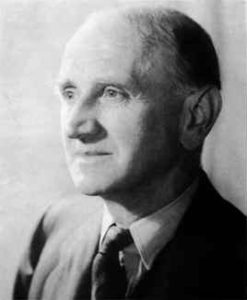
A.C. Aitken (1895-1967) was a professor of mathematics at the University of Edinburgh. He was one of those people who could make lightning-fast, complex mathematical calculations in his head. Although he was first and foremost a mathematician, his unusual memory skills deserve attention.
He once memorized the first 1,000 digits of pi and said it was like “learning a Bach fugue”. It would appear that he arranged the digits in rows of fifty, each row comprising ten groups of five numbers. He would then read through them, adopting a certain rhythm.
When reciting the digits, he would call out five per second, followed by a pause, and then another five digits. In this way, he would get through fifty digits every fifteen seconds.
His familiarity with numbers helped him translate them into more memorable forms. When confronted with 1961, for example, he immediately saw 37×53 or 44² + 5² or 40² + 19².
Aitken’s memory, however, proved a major problem for him throughout his life. As a young man, in 1915, he had enlisted in the New Zealand Expeditionary Force and served in Gallipoli, Egypt, and France, being wounded at the battle of the Somme. His war experiences were to haunt him for the rest of his life.
For most people, memories fade in time, which is particularly fortunate for the unpleasant things that have happened. However, for Aitken, memories did not fade, and his horrific memories of the battle of the Somme lived with him as real as the day he lived them. Near the end of his life, he wrote a book, Gallipoli to the Somme, trying to put the memories of the Somme behind him. This may not have had the desired effect, since his memories contributed, or perhaps were the entire cause, of the recurrent ill health he suffered. The illness eventually led to his death.
